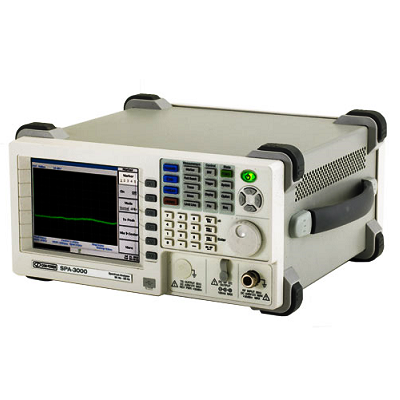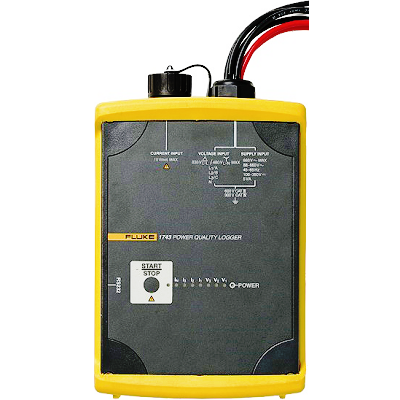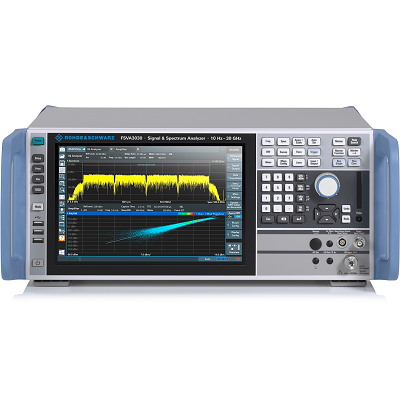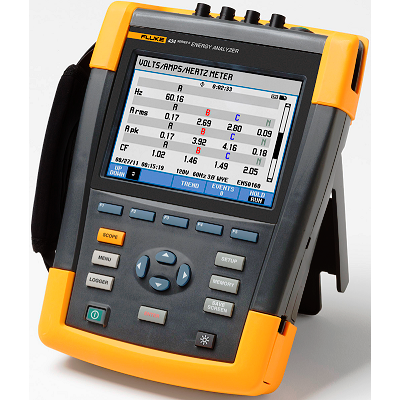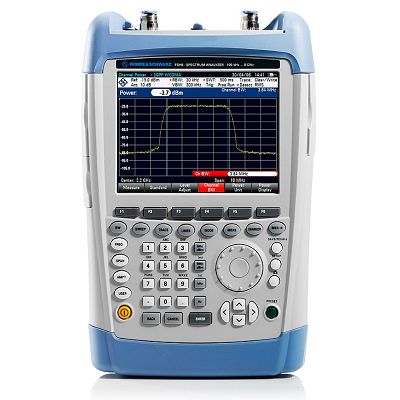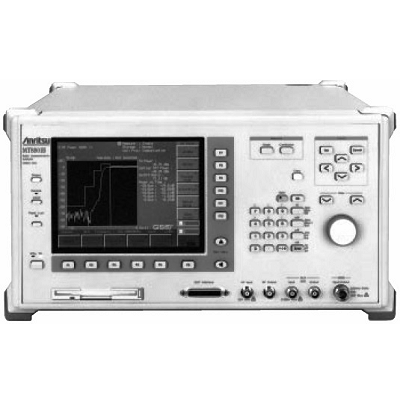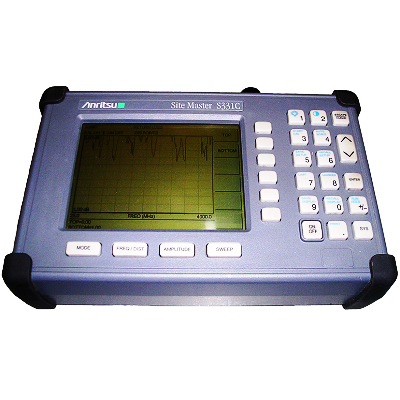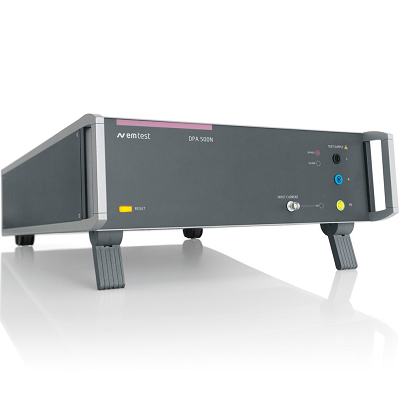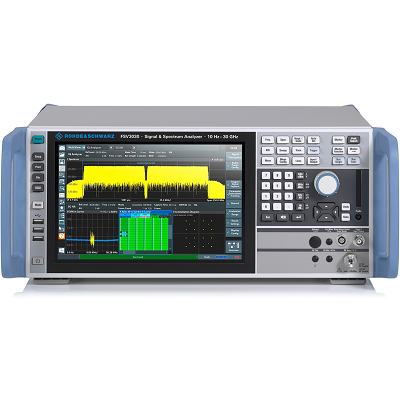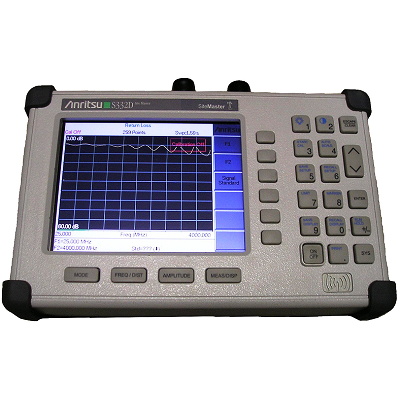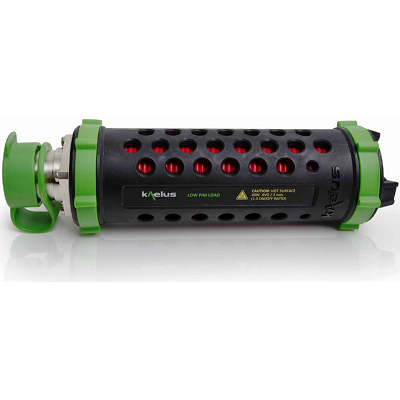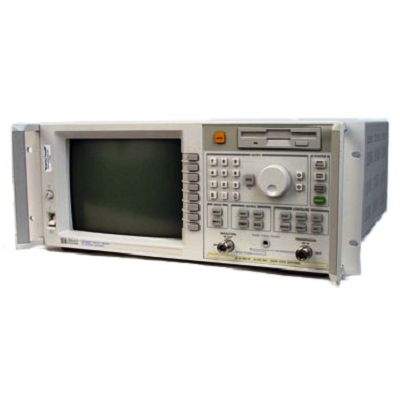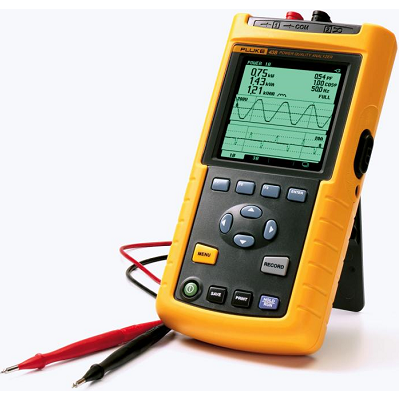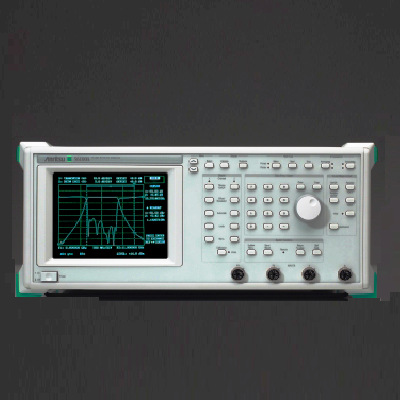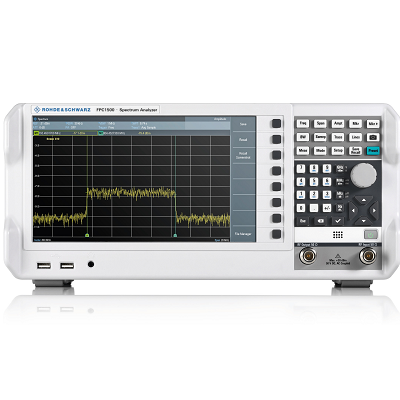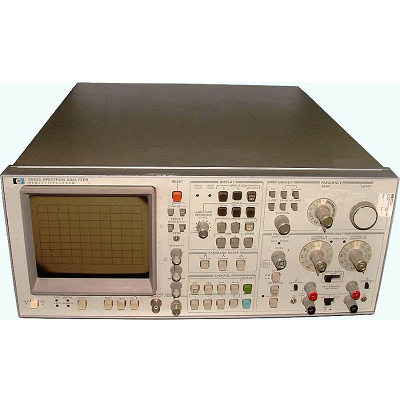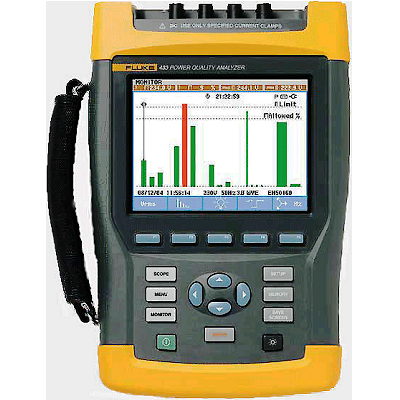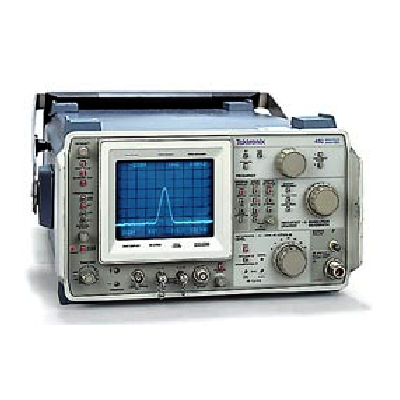Anritsu MS2712E Compact Handheld Spectrum Analyzer 9 kHz - 4 GHz
Description
Anritsu introduces its next generation compact handheld Spectrum Analyzers to meet the needs for portability. Whether it is for spectrum monitoring, broadcast proofing, interference analysis, RF and microwave measurements, or Wi-Fi and wireless network measurements, the Spectrum Master is the ideal instrument for making fast and reliable measurements.
Features
- Measurements: Occupied Bandwidth, Channel Power, ACPR, C/I
- Interference Analyzer: Spectrogram, Signal Strength, RSSI, Mapping
- Dynamic Range: > 102 dB in 1 Hz RBW
- DANL: –162 dBm in 1 Hz RBW
- Phase Noise: –100 dBc/Hz max @ 10 kHz offset at 1 GHz
- Frequency Accuracy: < ± 50 ppb with GPS On
- Traces: Normal, Max Hold, Min Hold, Average, # of Averages
- Detectors: Peak, Negative, Sample, Quasi-peak, and true RMS
- Markers: 6, each with a Delta Marker, or 1 Reference with 6 Deltas
- Limit Lines: up to 41 segments with one-button envelope creation
- Trace Save-on-Event: crossing limit line or sweep complete
Specifications
Measurements |
|||||||
|
Smart Measurements |
Field Strength (uses antenna calibration tables to measure dBm/m2, dBmV/m, dBV/m, dBu/m, Volt/m, Watt/m2, dBW/m2, A/m dBA/m and Watt/cm2) |
||||||
|
Occupied Bandwidth (measures 99% to 1% power channel of a signal) |
|||||||
|
Channel Power (measures the total power in a specified bandwidth) |
|||||||
|
ACPR (adjacent channel power ratio) |
|||||||
|
AM/FM/SSB Demodulation (wide/narrow FM, USB and LSB), (audio out only) |
|||||||
|
C/I (carrier-to-interference ratio) |
|||||||
|
Emission Mask |
|||||||
|
Coverage Mapping (requires Option 0431) |
|||||||
|
Setup Parameters |
|||||||
|
Frequency |
Center/Start/Stop, Span, Frequency Step, Signal Standard, Channel #, Channel Increment |
||||||
|
Amplitude |
Reference Level (RL), Scale, Attenuation Auto/Level, RL Offset, Pre-Amp On/Off, Detection |
||||||
|
Span |
Span, Span Up/Down (1-2-5), Full Span, Zero Span, Last Span |
||||||
|
Bandwidth |
RBW, Auto RBW, VBW, Auto VBW, RBW/VBW, Span/RBW |
||||||
|
File |
Save, Recall, Delete, Directory Management |
||||||
|
Save/Recall |
Setups, Measurements, Limit Lines, Screen Shots Jpeg (save only), Save-on-Event |
||||||
|
Save-on-Event |
Crossing Limit Line, Sweep Complete, Save-then-Stop, Clear All |
||||||
|
Delete |
Selected File, All Measurements, All Mode Files, All Content |
||||||
|
Directory Management |
Sort Method (Name/Type/Date), Ascend/Descend, Internal/USB, Copy, Format USB |
||||||
|
Application Options |
Bias-Tee (On/Off), Impedance (50 Ω, 75 Ω, Other) |
||||||
|
Sweep Functions |
|||||||
|
Sweep |
Single/Continuous, Sweep Mode (Fast, Performance, No FFT), Reset, Detection, Minimum Sweep Time, Trigger Type, Gated Sweep (see Option 0090) |
||||||
|
Detection |
Peak, RMS, Negative, Sample, Quasi-peak |
||||||
|
Triggers |
Free Run, External, Video, Change Position, Manual |
||||||
|
Trace Functions |
|||||||
|
Traces |
Up to three Traces (A, B, C), View/Blank, Write/Hold, Trace A/B/C Operations |
||||||
|
Trace A Operations |
Normal, Max Hold, Min Hold, Average, # of Averages, (always the live trace) |
||||||
|
Trace B Operations |
A B, B C, Max Hold, Min Hold |
||||||
|
Trace C Operations |
A C, B C, Max Hold, Min Hold, A – B C, B – A C, Relative Reference (dB), Scale |
||||||
|
Marker Functions |
|||||||
|
Markers |
Markers 1-6 each with a Delta Marker, or Marker 1 Reference with Six Delta Markers, Marker Table (On/Off), All Markers Off, |
||||||
|
Marker Types |
Style (Fixed/Tracking), Noise Marker, Frequency Counter Marker |
||||||
|
Marker Auto-Position |
Peak Search, Next Peak (Right/Left), Peak Threshold %, Set Marker to Channel,Marker Frequency to Center, Delta Marker to Span, Marker to Reference Level |
||||||
|
Marker Table |
1-6 markers frequency and amplitude plus delta markers frequency amplitude and offset |
||||||
|
Limit Line Functions |
|||||||
|
Limit Lines |
Upper/Lower, On/Off, Edit, Move, Envelope, Advanced, Limit Alarm, Default Limit |
||||||
|
Limit Line Edit |
Frequency, Amplitude, Add Point, Add Vertical, Delete Point, Next Point Left/Right |
||||||
|
Limit Line Move |
To Current Center Frequency, By dB or Hz, To Marker 1, Offset from Marker 1 |
||||||
|
Limit Line Envelope |
Create Envelope, Update Amplitude, Points (41 max), Offset, Shape Square/Slope |
||||||
|
Limit Line Advanced |
Type (Absolute/Relative), Mirror, Save/Recall |
||||||
|
Frequency |
|||||||
|
Frequency Range |
9 kHz to 4 GHz (MS2712E), 9 kHz to 6 GHz (MS2713E) (usable to 0 Hz) |
||||||
|
Tuning Resolution |
1 Hz |
||||||
|
Frequency Reference |
Aging: ± 1.0 ppm/yearAccuracy: ± 1.5 ppm (25 °C ± 25 °C) + aging, < ± 50 ppb with GPS On |
||||||
|
Frequency Span |
10 Hz to 4 GHz including zero span (MS2712E), 10 Hz to 6 GHz including zero span (MS2713E) |
||||||
|
Sweep Time |
Minimum 100 ms, 10 μs to 600 seconds in zero span |
||||||
|
Sweep Time Accuracy |
± 2 % in zero span |
||||||
|
Bandwidth |
|||||||
|
Resolution Bandwidth (RBW) |
1 Hz to 3 MHz in 1–3 sequence ± 10% (1 MHz max in zero-span) (–3 dB bandwidth) |
||||||
|
Video Bandwidth (VBW) |
1 Hz to 3 MHz in 1–3 sequence (–3 dB bandwidth) (auto or manually selectable) |
||||||
|
RBW with Quasi-Peak Detection |
200 Hz, 9 KHz, 120 kHz (–6 dB bandwidth) |
||||||
|
VBW with Quasi-Peak Detection |
Auto VBW is On, RBW/VBW = 1 |
||||||
|
Spectral Purity |
|||||||
|
SSB Phase Noise @ 1 GHz |
–100 dBc/Hz, –110 dBc/Hz typical @ 10 kHz offset |
||||||
|
–105 dBc/Hz, –112 dBc/Hz typical @ 100 kHz offset |
|||||||
|
–115 dBc/Hz, –121 dBc/Hz typical @ 1 MHz offset |
|||||||
|
Amplitude Ranges |
|||||||
|
Dynamic Range |
> 102 dB (2.4 GHz), 2/3 (TOI-DANL) in 1 Hz RBW |
||||||
|
Measurement Range |
DANL to +26 dBm |
||||||
|
Display Range |
1 dB to 15 dB/div in 1 dB steps, ten divisions displayed |
||||||
|
Reference Level Range |
–120 dBm to +30 dBm |
||||||
|
Attenuator Range |
0 dB to 55 dB in 5 dB steps |
||||||
|
Maximum Continuous Input |
+30 dBm |
||||||
|
Amplitude Units |
Log Scale Modes: dBm, dBV, dBmV, dBuV, dBW, dBmW, dBuW, dBA, dBmA,dBuALinear Scale Modes: nV,uV,mV,V,kV,nW,uW,mW,W,kW,nA,uA,mA,A |
||||||
|
Amplitude Accuracy |
|||||||
|
9 kHz to 100 kHz |
± 2.0 dB typical |
||||||
|
100 kHz to 4.0 GHz |
± 1.25 dB, ± 0.5 dB typical |
||||||
|
> 4.0 GHz to 6 GHz |
± 1.50 dB, ± 0.5 dB typical |
||||||
|
Displayed Average Noise Level (DANL) |
|||||||
|
Preamp Off |
Preamp On |
||||||
|
(Reference level –20 dBm) |
(Reference level –50 dBm) |
||||||
|
(RBW = 1 Hz, 0 dB attenuation) |
Maximum |
Typical |
Maximum |
Typical |
|||
|
10 MHz to 2.4 GHz |
–141 dBm |
–146 dBm |
–157 dBm |
–162 dBm |
|||
|
> 2.4 GHz to 4 GHz |
–137 dBm |
–141 dBm |
–154 dBm |
–159 dBm |
|||
|
> 4 GHz to 5 GHz |
–134 dBm |
–138 dBm |
–150 dBm |
–155 dBm |
|||
|
> 5 GHz to 6 GHz |
–126 dBm |
–131 dBm |
–143 dBm |
–150 dBm |
|||
|
Spurs |
|||||||
|
Residual Spurious |
< –90 dBm (RF input terminated, 0 dB input attenuation, > 10 MHz) |
||||||
|
Input-Related Spurious |
< –75 dBc (0 dB attenuation, –30 dBm input, span < 1.7 GHz, carrier offset > 4.5 MHz) |
||||||
|
Exceptions, typical |
< –70 dBc @ <2.5 GHz, with 2072.5 MHz Input |
||||||
|
< –68 dBc @ F1 – 280 MHz with F1 Input |
|||||||
|
< –70 dBc @ F1 + 190.5 MHz with F1 Input |
|||||||
|
< –52 dBc @ 7349 – (2F2) MHz, with F2 Input, where F2 < 2424.5 MHz |
|||||||
|
< –55 dBc @ 190.5 ± (F1/2) MHz, F1 < 1 GHz |
|||||||
|
Third-Order Intercept (TOI) |
|||||||
|
Preamp Off (–20 dBm tones 100 kHz apart, 10 dB attenuation) |
|||||||
|
800 MHz |
+16 dBm |
||||||
|
2400 MHz |
+20 dBm |
||||||
|
200-2200 MHz |
+25 dBm, typical |
||||||
|
> 2.2 GHz to 5.0 GHz |
+28 dBm, typical |
||||||
|
> 5.0 GHz to 6.0 GHz |
+33 dBm, typical |
||||||
|
Second Harmonic Distortion |
|||||||
|
Preamp Off, 0 dB input attenuation, –30 dBm input |
|||||||
|
50 MHz |
–56 dBc |
||||||
|
> 50 MHz to 200 MHz |
–60 dBc, typical |
||||||
|
> 200 MHz to 3000 MHz |
–70 dBc, typical |
||||||
|
VSWR |
2:1, typical |
||||||

